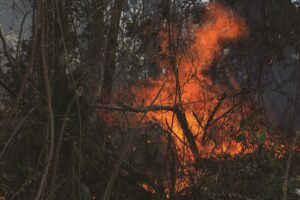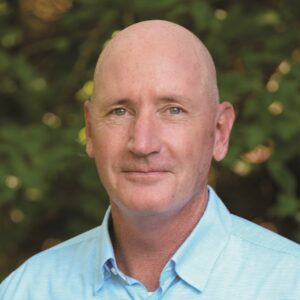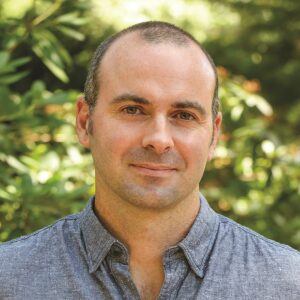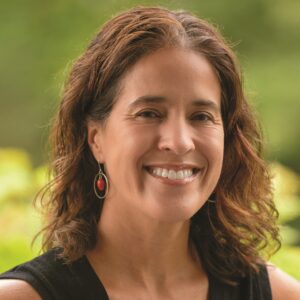The environmental challenges in the Amazon rainforest and Arctic permafrost may seem far removed from those in Provincetown, but what happens in one place can drastically affect the present and future of others.

“It is one big system,” emphasizes Michael Coe, senior scientist and director of the Tropics Program at the Woodwell Climate Research Center in Woods Hole. Individual scientists there may spend research time on the climate in a particular part of the world, he says, “but we always have to keep in mind it is one giant system.”

Three scientists will bring that message of interconnectedness to a June 1 panel presentation titled “World on Fire” at the Hawthorne Barn on Miller Hill Road in Provincetown. The event is Woodwell’s first collaboration with Twenty Summers, now in its 10th year of organizing cultural programs at the barn. This panel is part of Twenty Summers’ focus on merging art and science to imagine a more equitable, sustainable future. Climate change is a key part of its sold-out June 4 panel on Provincetown’s future, too.
The June 1 talk is also a local piece of Woodwell’s growing international efforts to bring vital research results into open forums that could potentially affect public opinion and policymaking as the effects of climate change accelerate.
Besides Coe, the other speakers on the program are associate scientist Brendan Rogers, whose expertise centers on the Arctic’s boreal forests and tundra, and Marcia Macedo, an associate scientist and Woodwell’s Water Program director, whose work focuses on water flow in tropical landscapes like the Amazon.

While their study areas are far apart in geography, ecology, and climate, the scientists say, both hold an immense amount of carbon — in the Amazon’s trees, where it can be released through fires and deforestation, and below the fragile and endangered Arctic ice.
Carbon dioxide is vital to maintaining balance in the Earth’s atmosphere and trapping heat from the sun. Too much carbon in the atmosphere has well-documented accelerating effects on the planet’s climate.
“So what happens in these two biomes doesn’t stay in these two biomes because these greenhouse gases get emitted and they get mixed globally,” says Rogers. That’s why reducing the number of fires and slowing deforestation and ice melting can make a big difference.
“The carbon that stays in those trees is then not warming the Arctic,” he says. “And the carbon that we can keep in the ground in the Arctic is not adding to warming and intensified fire-weather conditions in the tropics.”
Climate change most directly affects the Outer Cape through rising seas and coastal erosion. Coe and Rogers, though, discussed their upcoming Provincetown talk on a day in May when news reports said that the smoky haze East Coasters were experiencing was the result of wildfires in western Canada. Residents of Denver, Colo. were among those told to stay inside because the Canadian smoke had significantly lowered air quality.

Drifting smoke is just one visible sign, the scientists say, that fires anywhere can be a problem everywhere. “It’s good to connect the dots on climate change,” Rogers says, through talks like the Provincetown panel. “Everything about climate change is local. It manifests itself locally, yet at the same time it’s happening globally.”
That’s for the future as well as the present, especially when fire is involved. “Fire,” Coe says, “is what transforms the environment in front of us. It’s a huge agent of change.”
And it affects a vital resource on Cape Cod and thousands of miles away. “Forests,” he says, “are our greatest natural climate solution. There are very few ways that we can keep pulling carbon out of the atmosphere, and forests are number one. So, every bit of damage we do to them — by fires, for example — reduces our ability to mitigate climate change.”
Coe and Rogers say they will discuss solutions, too, and what individuals can do to help. In the past 20 years, as Coe has watched the number of fires greatly increase in the Amazon, he has been working with indigenous people and others to better fight and prevent the flames.
Where fires are not happening, people can help by reducing fossil fuel emissions, persuading others to do the same, and, most important, voting for politicians who agree with those steps and take action, Rogers says. “The choices people make do make a difference,” he says. “And we need everyone to get where we want to be.”
What might happen in the next 20 summers on Cape Cod and worldwide? It’s a tough question, Coe says, because climate change is accelerating. “The next 20 years will be a time of continual change.”
“It’s interesting to try to mix the real optimism that I and a lot of people feel and where we are today,” adds Rogers. “A lot is baked into the climate system now. But I would say that 20 years down the road we will either be headed on a similar path to where we are now, which is not great, or we will be headed down a path getting close to net-zero emissions, where societies across the globe are coming together and realizing the importance of this and having constructive dialogue about solutions. That’s where I want to be.”
Yes, the planet will continue to warm in the next 20 years, but if the right decisions are made and the right solutions pursued, people will see a real difference in 40 years, Rogers argues: “We can be in a place that our children and grandchildren might enjoy living in.”
World on Fire
The event: Scientists who study the tropics and the Arctic discuss climate change
The time: Thursday, June 1, 6 to 7:30 p.m.
The place: Twenty Summers (29 Miller Hill Road, Provincetown)
The cost: $20 suggested donation
